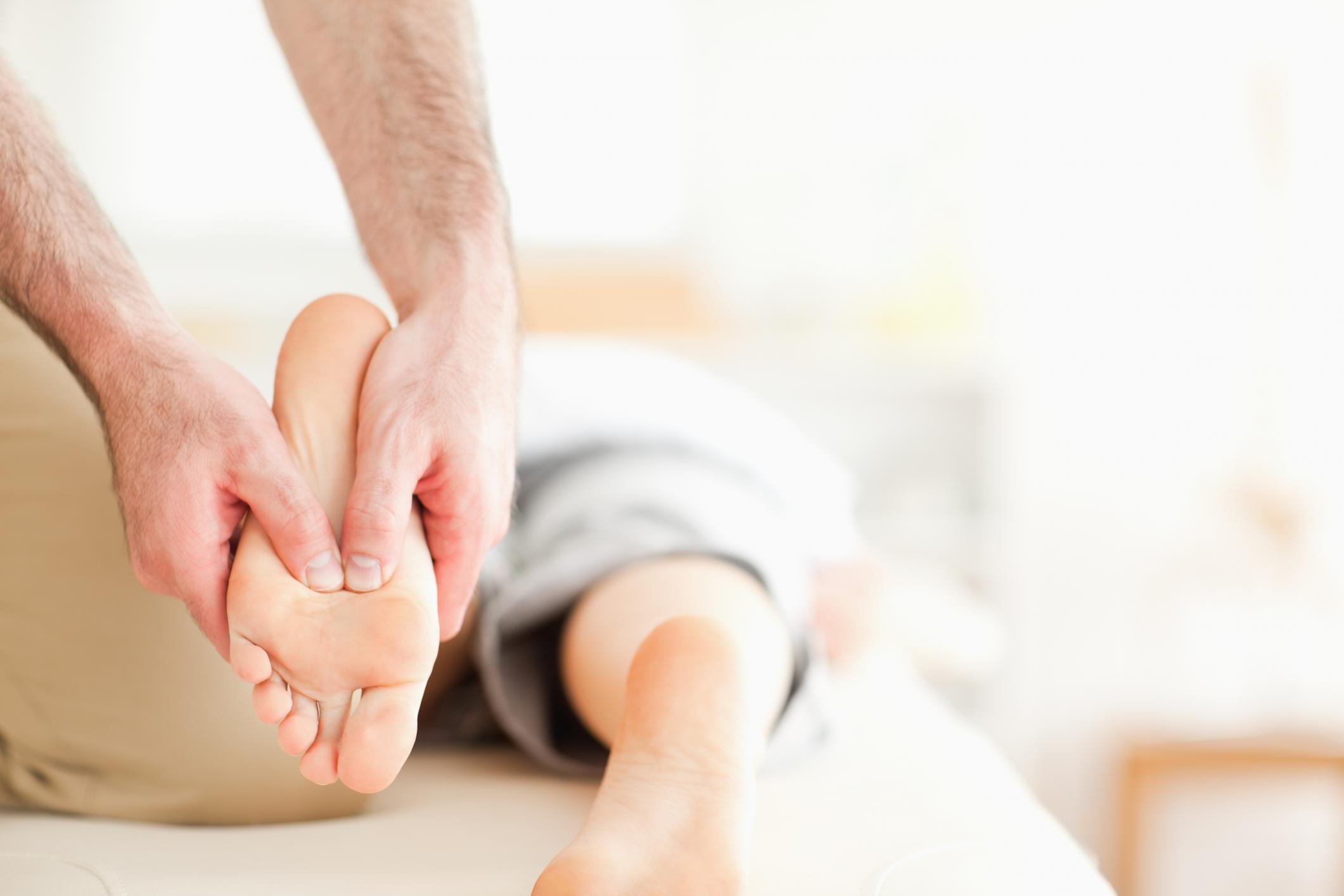While pregnancy is a joyous time as you await the arrival of your new baby, it can also be filled with some unpleasant effects on your body. One annoyance for many women, especially in humid North Florida, is swelling. Also known as “edema,” swelling of the feet, ankles, fingers and even face is a common complication many women face during their later trimester.
During pregnancy your blood vessels are more dilated than usual and you have 30 to 50% more blood volume than normal. All that excess blood can lead to puffiness. Though uncomfortable, it’s important to know that this type of swelling is normal for pregnancy and not dangerous.
Rarely, swelling can be a sign of a dangerous pregnancy condition called preeclampsia. With preeclampsia swelling, you can push in on a swollen area and the indent of your finger will remain, called pitting edema. Or, the swelling will occur suddenly in your hands and face. If you ever experience pitting edema or sudden swelling, call your OB/GYN immediately.
Regular swelling can’t always be avoided, especially if you live in warm weather climates and you’re in the last trimester of pregnancy. But there are some steps that you can take to help minimize this uncomfortable problem:
- Avoid standing on your feet for long periods of time. If your feet start to feel swollen, take a sitting break.
- Put your feet up, preferably higher than your heart. Try to do this several times a day. For example, you can try to elevate your feet during a lunch break and at the end of the day.
- Drink plenty of water. Not drinking enough water can cause your body to actually retain fluids. Aim for ten glasses a day.
- Avoid very salty foods. Don’t limit your intake of salt, but do try to avoid extremely salty snacks.
- Wear supportive shoes. During pregnancy, not only do you have an increase of blood volume, but your ligaments and muscles are also stretching out (read more about the resulting round ligament pain). Your feet are under a lot more pressure. Because of this, try to wear very supportive footwear to help your feet carry the load. For women who struggle with lots of foot and ankle swelling, compression stockings may also help.
In addition to these steps, you should also experiment with other relief efforts like:
- Swimming
- Cold water compresses
- Foot rubs or massages
When it comes to swelling in later pregnancy, take the advice of putting your feet up. You will likely be sitting more than you’re accustomed to after baby comes, so count this as practice.
At All About Women, our compassionate OB/GYNS and midwives are here for you through pregnancy’s pains and surprises. Continue reading about other pregnancy phenomena, like Braxton Hicks contractions.



